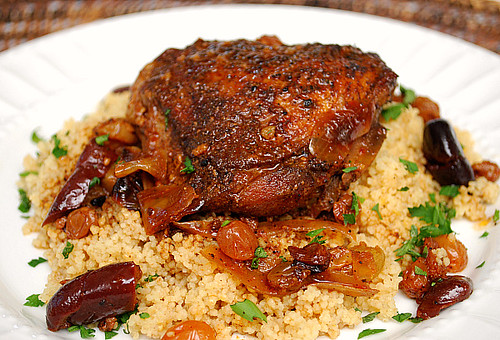The day I was diagnosed with Celiac Disease was terrible, and I will always remember it as one of the worst days of my life.
My "Celiac story" was not nearly as rough as others, but it was not easy by any means. I was on a similar road as a lot of other Celiacs: sick for months, switching from doctor to doctor, desperate for an answer to my issues other than "symptoms of severe anxiety." To keep it short (and save the rest of the story for another post, perhaps), I went under two scopes and was wheeled into a little discussion room. My gastroenterologist came in with all those gross little pictures of my guts and said the C word.
That afternoon, I sat outside in my backyard, and I cried. I took a shower that evening, sat down in the tub, and cried. That night, I cried until I fell asleep, my face on a wet pillow and my mind exhausted. I thought my life was over.
The next day, I read some books. I also stuck those gut pictures on my fridge,
because I am kind of secretly super weird.
I don't think I can even begin to thoroughly explain the importance of books when first diagnosed with Celiac Disease. Books are always vital to life, but during a time when you have been slammed in the face with the reality wall, it's comforting to read and learn and know that you are not alone, you are not dying, you will get better.
Books
My favorite book I read during my early Celiacdom and still to this day is
The Gluten-Free Bible, by the incredibly articulate and humorous Jax Peters Lowell. If I was only able to recommend one book to a newly diagnosed person, this would be it. The first chapter is aptly titled The Brave New Celiac, in which she discusses the process of diagnosis and gives an extensive example of the basic gluten-free diet. Throughout the rest of the book, she lists her favorite companies and products, general (amazingly helpful) advice, recipes, and medical research. She is the one who introduced me to the fact that cuisines from other countries are far easier to eat than any American food, and dedicates an entire chapter on the ins and outs of international foods. The book is laced with wit and humor, and will lift spirits instantly, making it the perfect book for the freshly diagnosed. It is one of the best gluten-free resources out there! I still consult this book regularly and always feel inspired and positive after reading a few pages.


The restaurant and grocery guides from Triumph Dining have saved my butt more times than I can count! They are both perfect for traveling or local dining. The restaurant guide has state listings organized by city, with descriptions of price and food. They even list the names of some of the restaurant managers they consulted with, so you can ask to speak to that person and reference the guide! The grocery guide lists by item type, such as dairy or condiments. There are symbols for certified gluten-free, check ingredients, and possible cross-contamination. They are thorough and detailed, and occasionally they will offer free shipping or a discount on the order. The dining cards are incredible as well! I have brought them to Indian and Mediterranean restaurants with great luck.

If you aren't already following
the Steamy Kitchen blog, then get on it! While the book,
Steamy Kitchen, is not specifically gluten-free, every single recipe is easily adaptable to the diet. I have made many of the recipes in the book so far, including the
pho ga (Vietnamese chicken noodle soup!) which contains delicious spices and rice noodles. The summer rolls (made with rice paper) were perfect to take to lunch in a smaller tupperware container with a little bit of San-J Thai peanut sauce, and I can't even tell you how many times I have talked about the grilled bananas that are stuffed with dark chocolate and topped with toasted coconut (
seriously). The garlic butter noodles are sinful...okay I will stop here. Check out the blog and book asap!

I feel like it's necessary to at least mention this book, even though I personally did not care for it. Hasselbeck goes into detail about her Celiac story, which I found truly endearing and all too relatable. I was in awe of the effort she goes to reduce contamination while still having a combo kitchen (her kids and husband are not gluten-free). My main issues with the book are the ways in which she "hides" her disease. It was so strange to read, even with a recent diagnosis over my head, how she acts about her diet. She swaps plates with her husband at dinner parties so it appears that she ate the food, and even describes how the reader can do this "buddy strategy" as well. There is even a section about going outside or stepping into a bathroom to privately inhale a gluten-free snack when she's hungry and without options. With all this secretive behavior going on, the book still states that you should "be open about your dietary needs" with hosts or relatives. It's just too dang sneaky for me! This is an okay book for newly diagnosed, as it has a lot of tips and familiar stories, but some of the advice should be taken with a boulder of salt!
I'll do another post soon on the books I am currently reading (besides the Stephanie Plum series!). Here's a sneak peek of the titles:
Chocolate & Zucchini by Clotilde Dusoulier, Tropical Asian Cooking by Wendy Hutton, and Simple Fresh Southern by the Lee brothers.


















































